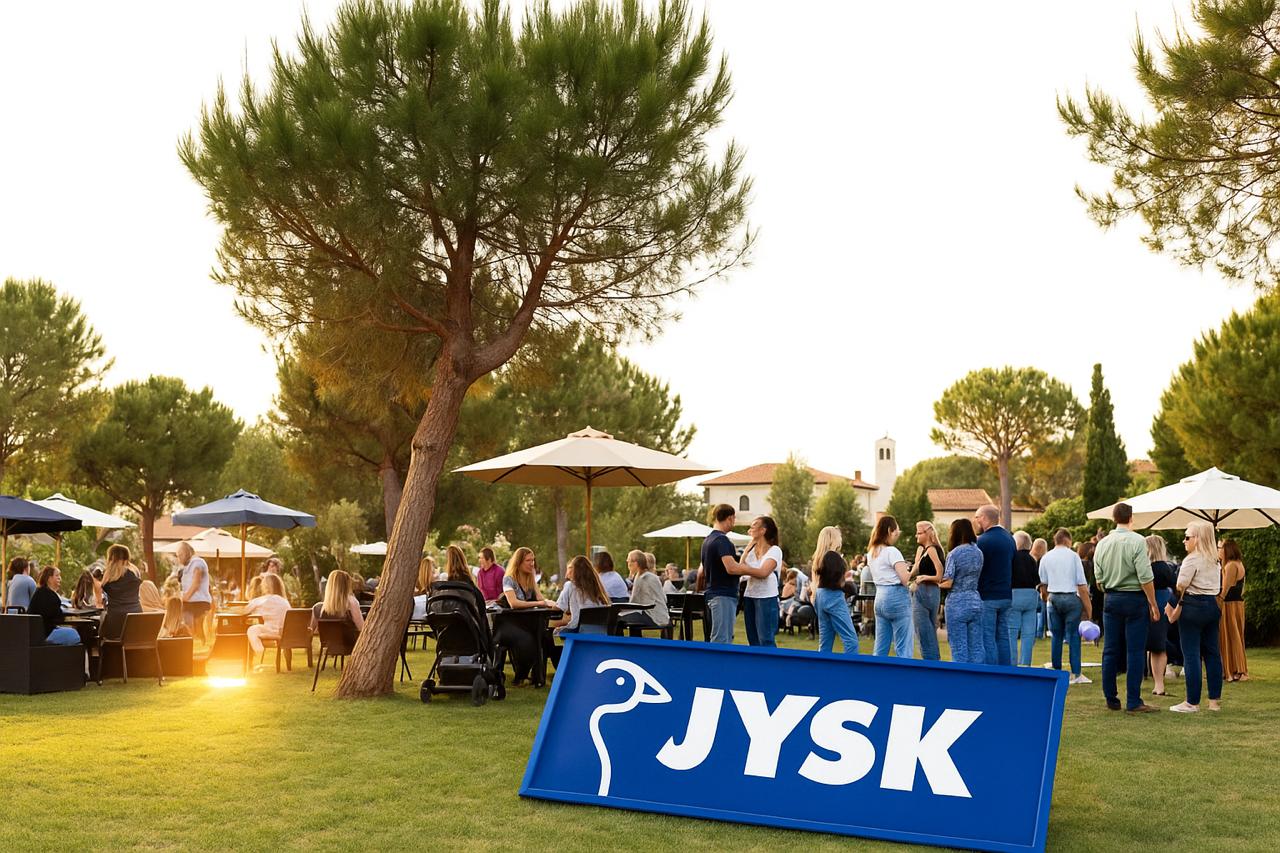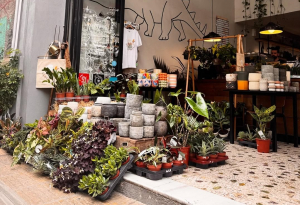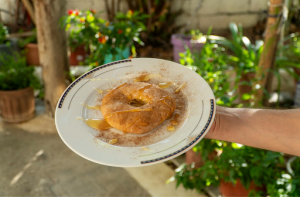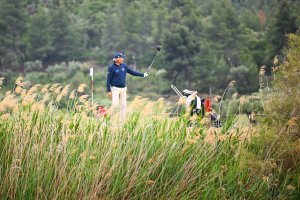BUSINESS CENTRE
XpatAthens
Plant Pop-Up | This is Loco x Sanopwleio
The 10 Best Restaurants To Try in Athens In 2025
Golf, Footgolf, & Wine Tasting - Porto Carras Pro-Am AEGEAN Mini Tour 2025 Begins!




All You Need To Know About The Meet Market #JazzEdition At Technopolis City Of Athens
✔ 100+ vendors
✔ DJ sets & free jazz concerts
✔ Street food & cocktails
✔ Free kids’ activities
From Monday, May 26 to Sunday, June 1, The Meet Market, the city's favorite pop-up market, meets the 24th Athens Jazz, a long-standing cultural staple of Athens, and together they kick off the summer with the biggest celebration of the year at Technopolis City of Athens.
Our favorite season is here!
Summer nights filled with music, color, cocktails, and jazz vibes under the Athenian sky.
We wander through vibrant stalls full of handmade creations, savor delicious street food, sip on cold beers and refreshing cocktails, and dance to the rhythm of free jazz concerts at the Athens Jazz Festival — all under the glow of Technopolis’s iconic red chimneys.
7 days in a row, 100+ Makers — 25+ of whom are introducing themselves to our audience for the very first time — fill the space with their inspired ideas, share their unique stories, and pass on their love for all things #handmade.
From well-designed clothing, standout accessories, unique jewelry, home décor, ceramics, posters, and natural wellness products, to tasty treasures from local Greek producers.
You come for the shopping and leave falling in love — with the creativity, the people, the atmosphere, the music — the entire experience.
And of course, staying true to our motto “First a Meet, then a Market”, all of the above will be happening alongside back-to-back DJ sets, fun activities, and pleasant surprises for our little visitors — all completely free!
Plus, stop by the Central Info Point to take part in the #BigRaffle, where three lucky winners will receive a gift basket full of goodies from our makers!
#MakersLineup:
Hand-Designer Clothes:
Anemuku, Bakayaro, Blue.di, eek, Inky, Joanna Misseli, Kadó Handmade, KALTSA ΣΟΚ, NIATA, Razzmatazz, RezArte, Sevi Waves, Σπαραγουάη, SυνARTησίες, The Botanical Project, The Spiral Project, Vandromeda Handmade, WorldWild
Kids, Toys & Pets:
Cow Makes MOO, Funky Little Stuff, Happy Button, I Love Bows, Mamuka, PeraPlekei
Accessories:
El Greco, Fabrika arts & Crafts, Gift in a box, Golfo, LePlou, MIA’s, Molkano, MoMo, Proof of Concept, Thearikoshop, Tiramisu
Jewelry:
Αιθήρ jewelry, A-symmetria, C.Karakalpaki, Chrisapiti, Diesblon, Denada’s Handmade, Hera Franka, IF Project, INO jewellery, Kati Designs, Keno, Kyma, La JOYa, La Lupa Designs, Lena_Yarnover, Lilian Syrigou, Macramoon creations, Mikaro Jewelry, Muki Jewels, Myrtilo Jewelry, Pink Geek, Pretty Little Things, Tortora Studio
Mind, Body & Soul:
111 elies, Christie’s, Ethra Essentials, Ichnos soap, KALYKA, Kalliope’s Botanicals, LAVANDULA, Myrtia Natural Cosmetics, Naucrate, To BEE or Not TO BE?, Valsamon, ZEST Natural Cosmetics
Art & Home Deco:
Avant Garden, Betty and Clay, Blindforced Drama, Candlemaker, Goldy Ceramics, HÀRA CERAMICS, HOT AF Candles, inspira ceramics, Kaolin Contemporary Ceramic Design, Loupes Printing, Logo Lady Studio, Lunatique, ΠΟΛΥ ΚΟΥΛ, Redy., Signature Project, S T O N E D Design, Tiny Books, Tiny Truths, tortuguita, To Diskadiko, Vintage Trip
Vintage & Retro:
Aleretur + Al=, It’s Clofie, King Kong Vintage, MUNDA, NTEMONTE, SMOCK, The Emerald Hut, Thrift Me Hard, VV Berlin
Tasting Corner:
Almond Soul, Αστική Μέλισσα, ChocoMe, Kakau Worship, ΣάΟΣ
Street Food & Drinks:
Falafeladiko, Ideas Lab, Main Squeeze, Kukuowl, KYKAO Handcrafted, Rubik’s, Sourmena Brew, Tarantino burgers
Free Activities for Kids
Bring the whole family — enjoy fun, free activities for kids all weekend logo!
Saturday 31/05
14:00 - 17:00 || Face-painting by Moutzoures
17:00 - 20:00 || Outdoor games by ΠΑΙΖώΝΤΑΣ
Sunday 01/06
14:00 - 17:00 || Face-painting by Moutzoures
18:00 - 19:00 || Kids' Gardening by Pots & Plants
19:00 - 20:00 || Magic Show by Magic Tolto
DJ Sets & Live Jazz Every Day
From sunset to midnight, Technopolis will come alive with back-to-back DJ sets and live jazz concerts from top local and international artists. Here’s a taste of the lineup:
Monday 26/05
19:00 - 21:00 Pipi Dee
21:00 - 22:00 Yiorgos Bereris Trio (GR)
22:00 - 23:00 Modified Dog (GR)
23:00 - 00:00 Valia Calda (GR)
Tuesday 27/05
19:00 - 21:00 Rrose Sélavy
21:00 - 22:00 Phønix (NO)
22:00 - 23:00 Mohs. (CH)
23:00 - 00:00 Toot Ensemble (CZ)
Wednesday 28/05
19:00 - 21:00 DJ a/k/a Zegas
21:00 - 22:00 Karja/Renard/Wandinger (EE)
22:00 - 23:00 New Fossils (HU)
23:00 - 00:00 AYYUKA (TR)
Thursday 29/05
19:00 - 21:00 dj kotétrataté
21:00 - 22:00 BI (AR)
22:00 - 23:00 Purple is the Color (AT)
23:00 - 00:00 Enrico Rava “Fearless Five” (IT)
Friday 30/05
19:00 - 21:00 Boycott
21:00 - 22:00 Tele-Port (LU)
22:00 - 23:00 Krúe (CY)
23:00 - 00:00 Concombre (FR)
Saturday 31/05
12:00 - 13:00 DJ Booth
13:00 - 15:00 Afrogirl
15:00 - 17:00 Vber
17:00 - 19:00 Dr. Orange
19:00 - 21:00 Winjer
21:00 - 22:00 Svante Söderqvist Trio (SE)
22:00 - 23:00 EABS (PL)
23:00 - 00:00 Smag På Dig Selv (DK)
Sunday 01/06
12:00 - 13:00 Father Neck
13:00 - 15:00 George Garavellos
15:00 - 17:00 DJ Kiten
17:00 - 19:00 Mr. Gee
19:00 - 21:00 Chris OD
21:00 - 22:00 Norman & Corrie (SCOTLAND, UK)
22:00 - 23:00 Moisés P. Sánchez (ES)
23:00 - 00:00 Kessoncoda (UK)
To stay up to date with all the latest news from The Meet Market, make sure to follow their accounts:
Facebook
Instagram
YouTube
Can’t make it to the event? No worries — all your favorite makers are gathered under one digital roof.
Check out the Meet Market e-shop!
This Is Loco At Thessaloniki Street Food Festival 2025
Greece’s New Golden Visa: Driving Innovation Through Startup Investments
- €800,000 for properties in high-demand areas like Athens, Thessaloniki, Mykonos, and Santorini.
- €400,000 for properties in other regions of Greece.
- The €250,000 threshold remains in specific cases, such as the conversion of commercial properties or the restoration of listed buildings.
- Minimum Investment Requirement of €250,000
- The new startup-focused Golden Visa requires a minimum investment of €250,000, making it accessible to a wider range of investors, from venture capitalists to individual entrepreneurs eager to bring fresh ideas to the Greek market.
- Investment in Startups Registered in Elevate Greece
- To qualify, investments must be directed toward startups registered with Elevate Greece, the official government platform supporting Greek startups. This ensures that funds are channeled into ventures with proven potential, aligning with national goals for innovation in technology, green energy, and health tech.
- Proving Financial Capability and Business Viability
- Investors must demonstrate both their financial capability and the viability of their chosen startups. This includes providing detailed business plans, proof of available capital, and a clear path to growth, ensuring only serious and capable investors participate.
- Boosting Innovation & Economic Growth: By focusing on startups, Greece aims to foster a culture of innovation, create high-quality jobs, and attract additional investment, contributing to broader economic growth. The Golden Visa program now encourages foreign capital to flow into innovative sectors, supporting the development of high-potential startups.
- Attracting Global Talent: This updated visa program is also designed to attract not just foreign capital but also international talent, fostering a globally connected startup ecosystem where new ideas can thrive.
- Diversifying the Economy: While Greece’s economy has traditionally relied on tourism, shipping, and real estate, this new initiative aims to expand its economic base by promoting technology, renewable energy, and other high-growth sectors.
- Strengthening the Startup Ecosystem: Elevate Greece, launched in 2020, is a key part of this strategy. It provides Greek startups with access to funding, networking opportunities, and international exposure, ensuring that foreign investments contribute to long-term growth.
- Long-term Residency & Access to the Schengen Zone
- Boosting Greece’s Economy
- Supporting the Growth of Startups
- Fostering Innovation
- Ensuring Quality Investments: To avoid low-quality or speculative investments, the government has introduced financial scrutiny measures, including the requirement to demonstrate both financial capability and business viability.
- Balancing Foreign & Local Interests: While foreign capital is crucial, the government must ensure that local entrepreneurs also benefit from this influx, maintaining a balanced ecosystem.
- Creating a Supportive Ecosystem: For the program to succeed, Greece needs to maintain a supportive business environment, including reducing bureaucracy and improving infrastructure.
How To Register A Used Car In Greece
Understanding the Process
- Original foreign vehicle registration
- NOVA confirmation receipt
- Purchase invoice or contract
- Emissions certificate (CO₂ & Euro standard)
- Declaration of mileage (Law 1599/1986)
- Road insurance policy (Greek-registered)
- KTEO Certificate (if vehicle is older than 4 years)
- Customs clearance documents
- Import duty & VAT receipts
- Registration Levy
- Environmental Tax, if applicable.
- Model: VW Golf TDI
- Year of First Registration: 2018
- Euro Standard: Euro 6d-TEMP
- CO₂ Emissions: 120 g/km
- Original New Price: €25,450
- Purchase Price: €12,000
- Original New Price (Factory List): €25,450
- Vehicle Age: 6 years
- Depreciation Rate (based on Greek tax code): 73%
- CO₂ Emissions: 120 g/km
- Euro Emissions Standard: Euro 6d-TEMP (latest diesel standard)
- Based on these factors, the registration levy is approximately 32% of the depreciated value: €6,871 × 32% = €2,198
|
Item |
Estimated Cost (€) |
Notes |
|
Registration Levy |
€2198 |
Based on emissions & taxable value |
|
Environmental Tax |
€0 |
Exempt |
|
KTEO Inspection (if applicable) |
~€50 |
Roadworthiness check required after 4 years |
|
Registration Fees & License Plates |
€75–€175 |
Includes Greek registration documents and plates |
|
Subtotal (Public Charges Only) |
~€2323-€2348 |
Excludes legal, handling, and coordination fees |
Note: The subtotal above covers only publicly assessed taxes and registration-related charges. Additional costs may apply for legal representation, document preparation, and coordination services.
Over 4,000 Participations, 70 Activities, & New Experiences At Navarino Challenge 2025!

Credit: Elias Lefas
- Greek-American ultramarathon runner Dean Karnazes received an award from Ms. Valia Vanezi, Communications Director of TEMES S.A.
- The family of Evgenia and Panagiotis Giannakis was honored for their inspiration and family contribution to sports by Michalis and Liza Triantafyllidis, as well as Mr. Thanos Kyriazis, Managing Director of Miele Cluster Adria Aegean.
- Ultramarathon runner and first Greek woman to finish the Spartathlon, Jo Manta, received an award from Dean Karnazes and the Deputy Mayor of the Pylos Municipal Unit, Mr. Ioannis Sardelis
• The award in memory of legendary coach Faidon Matthaiou was presented to his daughter, Ms. Fiorella Matthaiou, and his grandson, Faidon Matthaiou from the Hall of Famer Panagiotis Giannakis and Mr. Konstantinos Papalexandris, Chief Business Officer of KORRES. - Track and field champion Anastasia Marinakou received an award from Olympic medalists Dimitris Papanikolaou and Evina Maltsi, as well as from Ms. Maira Passia, Director of Sustainability & Corporate Communications of MOTODYNAMICS Group.
- Marathon runner and long-distance champion Dimitris Theodorakakos received an award from Olympian Periklis Iakovakis, coach Nikos Gemelos, and Mr. Ilias Liberis, Brand & Media Manager of Vikos.
- European wrestling champion Maria Prevolaraki received an award from European football champion Kostas Katsouranis and Ms. Mary Karageorgou, External Affairs Director of Novo Nordisk Hellas.
- Ultramarathon runner and Spartathlon record holder Fotis Zisimopoulos received an award from fellow ultramarathon runner Giorgos Dimoulas and Mr. Ilias Kanakis, Country Manager of The North Face.
- Discus Paralympic Silver medalist Makis Kalaras received an award for his social contribution from Paralympic gold medalist Grigoris Polychronidis, Greek wheelchair tennis champion Giorgos Lazaridis, fencing and basketball champion Georgia Kaltsi, and Mr. Sandor Szimeiszter, Country Director of JYSK Greece, Hungary & Austria.

Credit: Dimitris Andritsos Photography
Men’s Skincare. Grooming. Cologne.

Credit: Dimitris Andritsos Photography

Credit: Matthew Miller

Credit: Elias Lefas
- Diversity Seminar, led by Dimitris Papanikolaou — former international basketball player and ambassador of the Group — for students of all educational levels within the Municipality.
- Road Safety Workshop “Drive Change Move Safe”, delivered by motorsport coach Thanasis Choundras, targeting high school students from Pylos and Methoni.
- MOTODYNAMICS Group, in collaboration with the Library4All organization, donated books to enhance the lending library housed in the Tsiklitiras Residence.
- Similarly, as part of Navarino Challenge 2025, JYSK donated two desks and a bookcase to the Municipality of Pylos-Nestor, with the donation presented by Stavroula Mourkakou, Director of JYSK Kalamata.

Credit: Matthew Miller
JEROME KALUTA LIVE at SOUL SKG
If you love a pure disco and funk vibes, you will exprerience an evening full of rhythm, energy and groove, where all time classics embraces the ukulele and Jerome's original pieces, in a unique party!
Through the sound of Brass and Percussion we will dance to songs from the 80's 90's RNB-DISCO, James Brown, Ray Charles, Salt n Pepa and many more legendary artists with all time classic hits, always with the inexhaustible energy that Jerome brings to the stage!
Jerome is accompanied by:
Ioanna Kallitsantsi : Voice
Note: The ticket is for entry to the venue (bar) only. For seating reservations, call: 6942 635296
XpatAthens Is Looking For Interns
XpatAthens is expanding and we're looking for two creative and motivated interns to jump in and help us grow. If you’re into content creation, social media, and digital communication, we want to hear from you!
This is a part-time remote position with flexbile working hours. It is a 3 month internship with the potential for longer term employment.
Indicative Responsibilities:
-
Content Creation
- Content uploading and website backend management
-
Manage social media accounts and help develop strategies
-
Research trends and contribute fresh ideas
-
Support digital marketing campaigns
- Manage incoming messages, respond to inquiries, and engaging with our community
What We’re Looking For:
-
Fluent English (written and spoken)
-
Strong understanding of social media platforms
-
Solid PC skills
-
Creative thinking and strong communication skills
- Basic graphic design and video editing are a plus
-
Detail-oriented and proactive mindset
-
Team player
- Works well independently (the position is remote, not in an office envronemnt)
Does this sound like a fit? Send us your CV and a few words about why you'd be a great addition to our team.
Can’t wait to meet you! 😊











